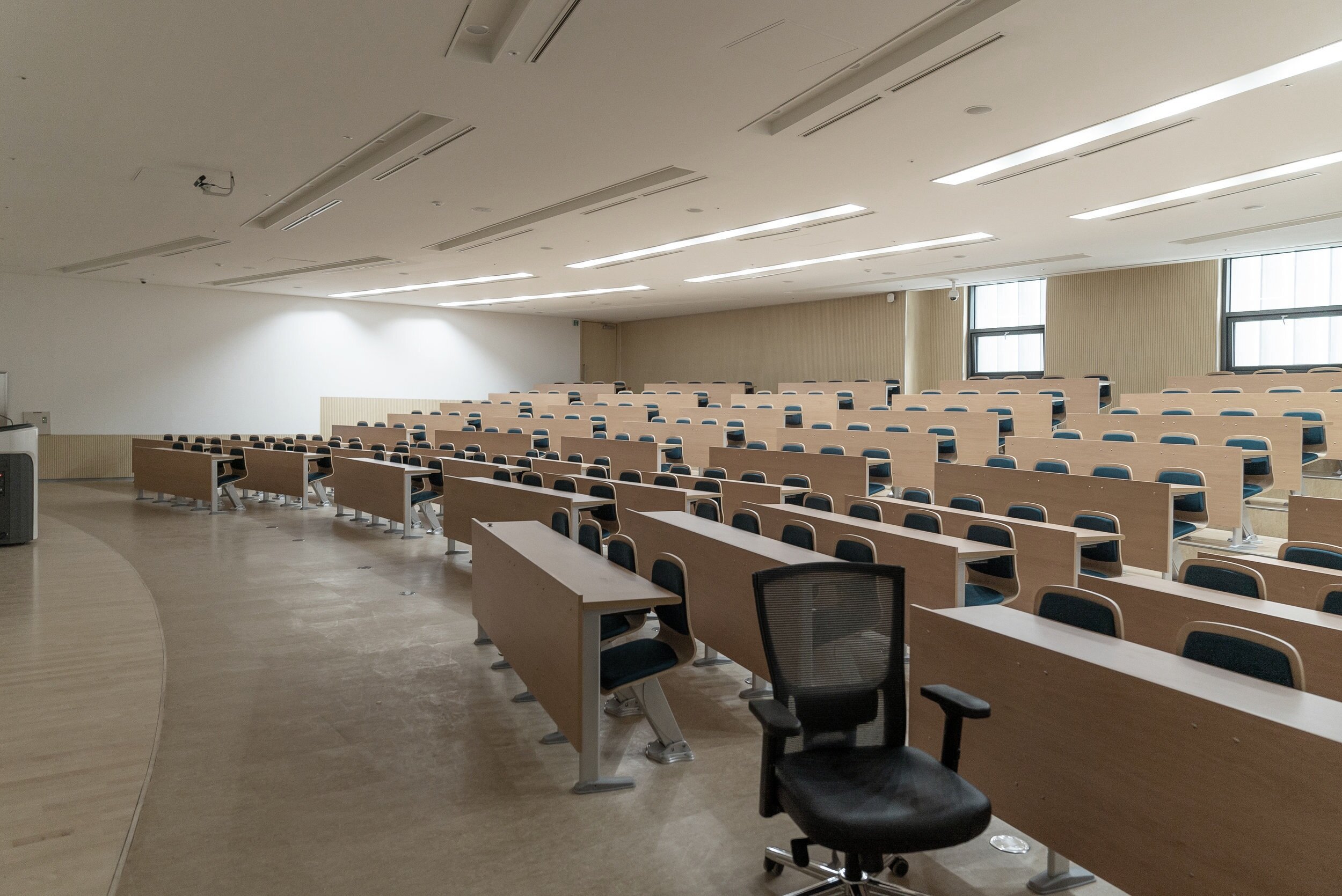
Study In Germany - Schools & Universities
Having a German Diploma is prestigious. University degrees are accredited, recognized and accepted in the whole world. Calculate your admission chances here.
Study In Germany
In 2016/17 winter semester, 2.8 million students were enrolled at 426 officially recognised universities in Germany. Overall, there were 357,835 international students.
More than 400 state-accredited universities provide almost 20,000 degree courses. German universities offer high-quality affordable education in a variety of subjects ranging from Hospitality, Management & Business, STEM subjects (Science, Technology, Engineering & Mathematics) to Humanities, Biotechnology and Pharmacology.
The quality of all higher education institutions is equally good. It mainly depends on what you want to study.
Foreign Students in German Universities
Top 5 Nationalities in German Universities
Source: DAAD (2017)
German Higher Educational Establishments
Which one is the right pathway for a student, depends on interests and career plans. The HEI in Germany can be classified into 5 categories:
Universities
Most of the public universities in Germany were established in the Middle Ages. Since their inception, the focus was mainly on theoretical knowledge, hence creating scientists. A very high level of focus was placed on ensuring that quality education was provided in various academic disciplines.
Technical Universities (Technische Universität (TU))
Technical universities are mainly specializing in a particular subject area.
Colleges of Education (Pädagogische Hochschule (PH))
Universities of Applied Sciences (Fachhchschule und Hochschulen für angewandte Wissenschaften)
Emphasizing practical training in a subject. Applied science institutions offer a more hands-on oriented approach. The training is adapted to the requirements of professional life. Mostly a course of study contains internships or semesters abroad to focus on the work placements of the graduates.
Art, Film and Music Colleges
Majority of art, film and music colleges teach in German language and you can study fashion & industrial design, visual arts, music, architecture, drama & dance here.
Generally, there are additional talent-based tests or examinations at the initial application stage.
Foreigners' Major Preference
Source: DAAD (2017)
Degree Types
Universities in Germany operate under the Bologna reform, meaning that all students are entitled to get internationally recognized degrees:
Bachelor Programs
3 or 4 years long (180 - 210 ECTS points).
Mainly 6-8 Semesters
Mostly require Studienkolleg and Feststellungsprüfung
Master Programs
1 or 2 years long (60 ECTS / 120 ECTS).
Mainly 2-4 semesters (exceptions apply: 5 semester programs with Non-Business Bridge Semester)
Master programs in Germany are consecutive: if you have Bachelor in Physics, you need to apply to a Master in Physics degree (or alternative similar field of study)
PhD Programs
Mainly 4-6 semesters
MBA Programs
1 or 1.5 years duration (60-90 ECTS)
The MBA programs are designed for working professionals with extensive work experience.
MBA programs in Germany are non-consecutive: a Bachelor degree can come from a non-related field.
Medicine, Law, and Pharmacy programs have a longer duration of study as well as additional exams.
Degree Titles
| Linguistics, Cultural Studies, Sports, Sports Science, Social Sciences, Art Studies | Bachelor of Arts (B.A.), Master of Arts (M.A.) |
|---|---|
| Mathematics, Natural Sciences, Medicine, Agriculture, Forestry, Nutrition | Bachelor of Science (B.Sc.), Master of Science (M.Sc.) |
| Economics | According to the contents of the Degree Program: Bachelor of Arts or Bachelor of Science (B.A. or B.Sc.); Master of Arts or Master of Science (M.A. or M.Sc.) |
| Engineering Sciences | Bachelor of Engineering or Bachelor of Science (B.Eng. or B.Sc.); Master of Engineering or Master of Science (M.Eng or M.Sc.) |
| Law Sciences | Bachelor of Laws (LL.B.), Master of Laws (LL.M.) |
| Fine Art | Bachelor of Fine Arts (B.F.A.), Master of Fine Arts (M.F.A.) |
| Applied Arts, Performing Arts | Bachelor of Arts (B.A.), Master of Arts (M.A.) |
| Music | Bachelor of Music (B.Mus.), Master of Music (M.Mus.) |
| Apprenticeship Courses | Bachelor of Education (B.Ed.), Master of Education (M.Ed.) |
Studienkolleg
Studienkolleg is a preparation course for foreign students, willing to apply to a German university Undergraduate Courses. Courses are separated according to subjects and future educational choices of the applicant.
For students coming from the majority of foreign countries, this course is mandatory. Students choose one of the modules listed below and study 1 academic year (2 semesters) in Studienkolleg:
Students need to choose Studienkolleg according to their future education choice. According to the course (Kurs), the students can choose to apply to:
A University (UNI M / UNI T / UNI W / UNI G / UNI S) or
University of Applied Sciences (UAS TI / UAS WW / UAS GD / UAS SW)
| UNI M | Medicine, Biology, (Chemistry), Pharmacy |
|---|---|
| UNI T | Mathematics, Physics, Chemistry (also in M), Technical Subjects |
| UNI W | Economics, Social Sciences, Business Studies |
| UNI G | Humanities, German Literature, Language |
| UNI S | Languages |
| UAS TI | Technical and Engineering Sciences |
| UAS WW | Business Studies |
| UAS GD | Art, Design |
| UAS SW | Social Sciences |
T-Kurs:
German, Mathematics, Physics, Chemistry and Informatics
M-Kurs:
German, Mathematics, Physics, Chemistry and Biology
W-Kurs:
German, Mathematics, Economics, Business and Sociology
G-Kurs:
German, History, German Literature, Sociology and Statistics
Feststellungsprüfung
After the year of studies in Studienkolleg, students must pass Feststellungsprüfung - exam in written form for 3 different subjects according to the selected major. Subjective oral examinations may be added on top. Each student only has 1 retake option and must do it after 6 months after the 1st tryout.
All state Studienkolleg teach in the German language. Private universities offer Foundation/Pathway programs in the English language, which could substitute Studienkolleg. Not all students have to take Studienkolleg, as exceptions apply.
Documents Required for Admission
It is important that you can provide full records of your previous training. There are generally required documents to be able to obtain a visa as well as university/program specific.
It is highly recommended that you have your documents translated into German or English. Upon admission, both originals and certified translations must be presented.
✔ Latest Education Level Certificates
Secondary School Transcripts & Diploma
Bachelor Degree Transcripts & Diploma
Master/MBA Degree Transcripts & Diploma
✔ Motivational statement
✔ Passport Copy & Passport Photograph
✔ Reference / Recommendation Letters
✔ CV (Curriculum Vitae)
✔ Entrance Test and/or Interview result
✔ Proof of language skills
IELTS/TOEFL/Cambridge/PTE or alternative
DHS/Test DAF/Goethe Zertifikat or alternative
✔ Application Fee (if applicable)
✔ Confirmation of Eligibility (Hochschulzugangsberechtigung)
Deadlines
Academic Year consists of 2 semesters, mostly 30 ECTS (credit points) each. Students can start studying in Germany two times a year: in the Winter Semester (September/October) or in the Summer Semester (February/March).
Some universities have additional intakes according to the selected programs. Some private universities have rolling admission deadlines and faster processing times (can be up to 2 weeks only).
University Students
Winter Semester (September/October)
Application deadline: usually from the end of May to the 15 July
The letter of acceptance will be sent in August/September.
Notification of rejection will be sent in September and October.
Summer Semester (March/April):
Application deadline: the beginning of December to the 15 January
The letter of acceptance will be sent in February/March.
Notification of rejection will be sent in March/April.
Reasons To Study In Germany
Low Tuition Fees
Programs In English
High Quality Teaching
Job Opportunities
1 Visa To 26 Countries
Job-Seeker Visa & German Passport















